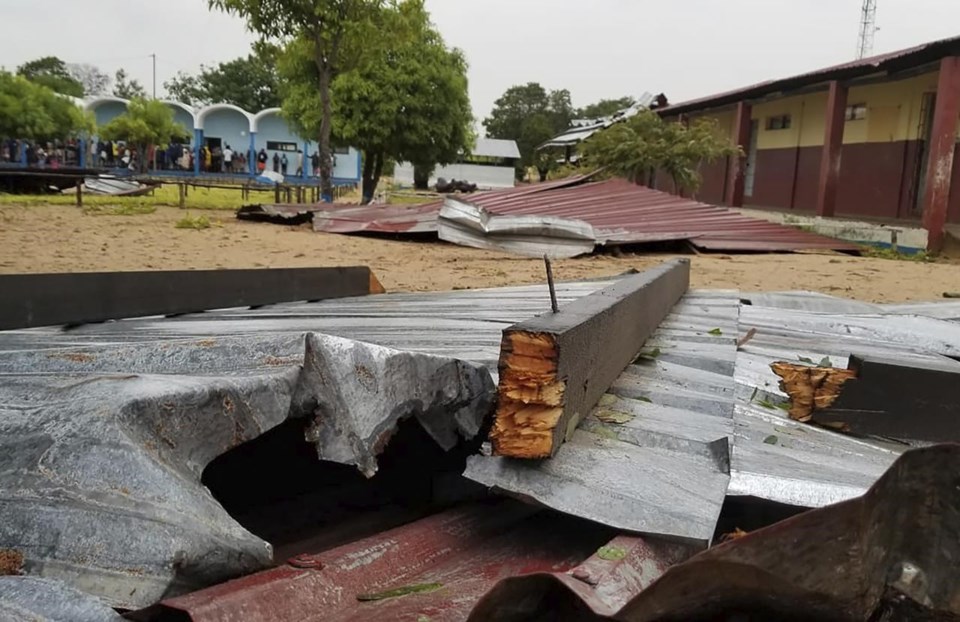MOMBASA, Kenya (AP) — Still recovering from the effects of the first battering, the southeastern African nation of Mozambique is bracing for a rare second hit by long-living Tropical Cyclone Freddy late on Friday night, a regional weather center said Tuesday.
The United Nations' monitoring station on the Indian Ocean island of Reunion warned that Freddy will “gradually intensify to the stage of a tropical cyclone or even an intense tropical cyclone” over the Mozambique Channel before making landfall overnight on Friday into Saturday.
Freddy is expected to intensify this Thursday as it approaches coastal Mozambique, with current windspeeds at sea averaging 110 kilometers (around 70 miles) per hour, gusts of 155 kilometers (around 100 miles) an hour. It's projected to make landfall in Zambezia, the country’s second most populous province.
Its reemergence has baffled meteorologists with its constant shift of direction and multiple record-breaking feats. Freddy has intensified four separate times, a first for a tropical cyclone in the southern hemisphere. It also now holds the world record for what’s known as accumulated cyclone energy, a metric to gauge a cyclone’s strength over time.
Freddy hammered eastern Madagascar last month before moving across the channel and slamming Mozambique and then circling back to cause a bout of heavy rainfall in Madagascar, killing 21 people across both nations.
The deluge affected an approximate 213,000 people and destroyed over 28,000 homes in the Mozambican capital of Maputo and nearby provinces, according to Mozambique’s National Institute for Disaster Risk Management. The U.N. weather agency said that early warnings and preparations effectively limited greater risk to human life.
Freddy appeared to have dissipated in recent days before it reemerged, looping around the Mozambican Channel. It was initially destined to land in Madagascar a second time but shifted course back to mainland Africa.
French weather agency Météo-France said in a bulletin Tuesday that as Freddy gathers more pace, it also poses severe weather risks to Toliara, the capital of Madagascar’s Atsimo-Andrefana region. It said strong winds and the sea remained “dangerous due to the cyclonic swell.” The cyclone is currently soaking southern Madagascar as it hovers over the channel.
The U.N. weather agency said Freddy is on course to become the longest-lived tropical cyclone in history after traversing the entire Indian Ocean for a month.
November to April is classified as the cyclone season in the southwest Indian Ocean and climate scientists say that climate change is intensifying cyclones, making them longer, wetter and more frequent. ___
Associated Press climate and environmental coverage receives support from several private foundations. See more about AP’s climate initiative here. The AP is solely responsible for all content.
Wanjohi Kabukuru, The Associated Press



